Keyword search volume is an important metric used by SEO professionals.
But this metric has some limitations that are usually unknown to beginners. And unfortunately, this leads to incorrect marketing decisions not to mention wasting time.
Throughout this article, we will have to talk about keyword search volume focusing on the things that can lead to wrong decisions.
What is keyword search volume?
Search volume is the number of times a keyword is searched for on a search engine during a given period of time. This period lasts on average 1 month.
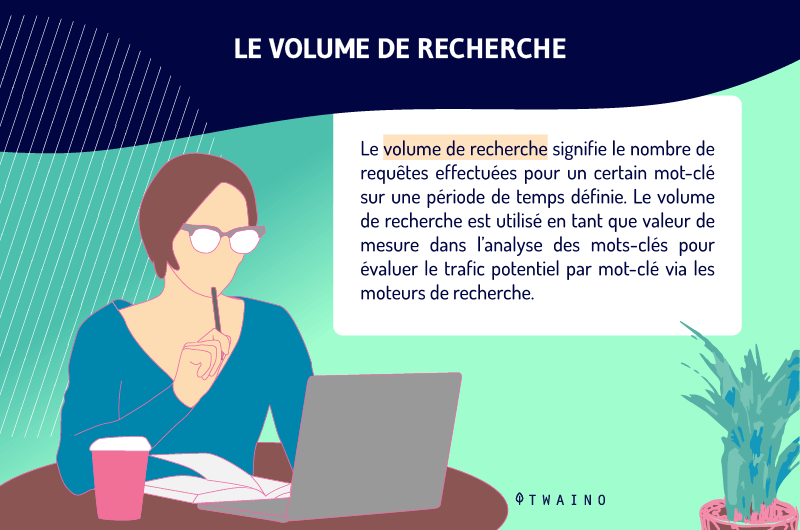
Very often, many people think that search volume is only about the Google search engine. What is important to know is that this measure can also affect other search engines.
This is the place to point out an important aspect regarding the keyword search volume. In reality, this indicates the actual number of searches for a keyword rather than the number of unique people who search for that keyword.
For example, if a keyword has a monthly search volume value of 100, it could mean that those searches were performed by 100 different people. Or by 10 people each doing 10 different searches on that same keyword.
That little clarification I just pointed out, however, is just the tip of the iceberg of many things that fool SEOs during a keyword search volume analysis.
Here are five other things you need to know to make better use of this metric.
1. Search volume numbers are actually annual averages
It’s important to know that many SEO tools present search volume as an annual average.
This in itself is not a real problem for search queries that have a rather stable demand throughout the year. However, this can be truly illusory for seasonal queries.
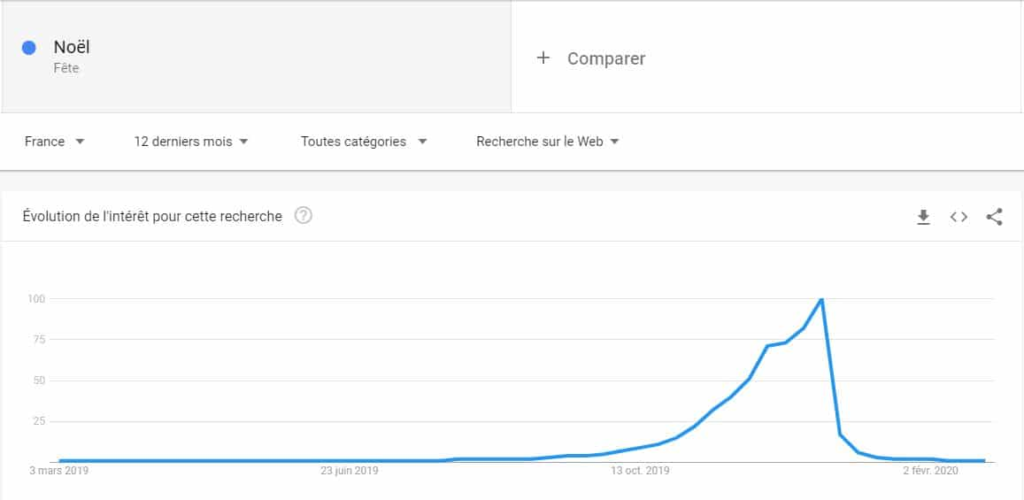
Indeed, it is quite difficult to predict how the search volume for a keyword will evolve in the coming months. The same is true for the difficulty in predicting whether the search volume of the keyword will stabilize once the trend or season has passed.
What needs to be understood here is that search volumes for a keyword can be very volatile or fluctuating.
In fact, the 12-month average figure that SEO tools show may not always ideally match the monthly search volume for that keyword or the time you rank for it.
2. Not all keyword searches performed end in a click

This second thing you may not know about keyword search volume is quite normal. Basically, the fact that users perform a search in no way means that they absolutely have to click on one of the search results.
Google in its entirety has only one objective: to satisfy its users at the moment they perform a search. And this without making them waste time clicking on one of the results generated by the search.
In fact, according to a recent study, two thirds of Google searches end without a click. The best known case concerns the keyword “elon musk age”.
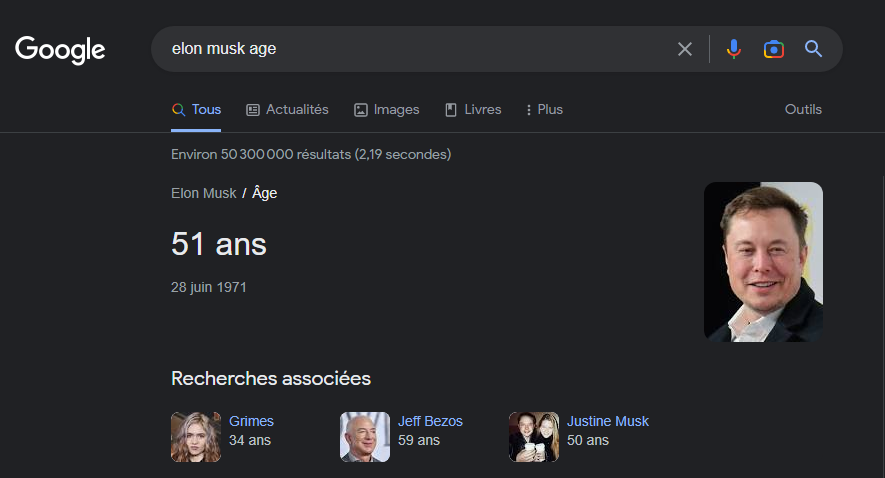
This query of Internet users receives an average of 37,000 searches per month. But the number of clicks on the search results is only 6300. Let me explain why.
This difference is explained by the fact that Google’s algorithms give an automatic answer to this query. Since the answer is clear, it discourages users from clicking on any of the search results in its SERP.
To that end, if a search query has a high search volume, it doesn’t necessarily mean that it will bring you a lot of search traffic.
3. Advertisers can steal your valuable clicks
Google ads have a great tendency to steal your valuable clicks. It used to be that Google would only show one or two ads at the very top of the organic search results.
This is no longer the case, as Google displays up to four ads.
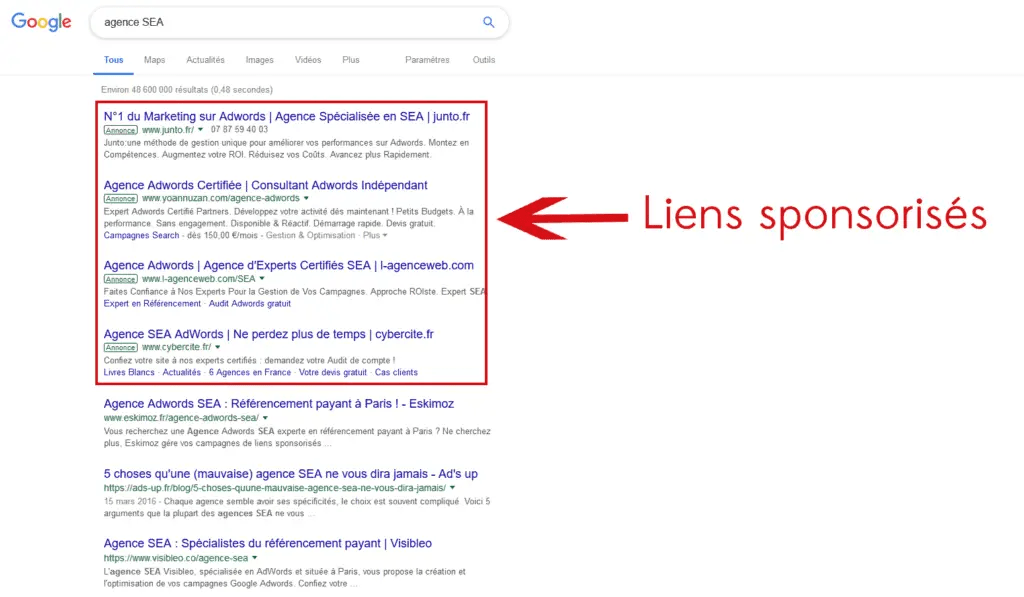
So, keep in mind that being ranked at the top for a popular keyword is not a guarantee of getting a lot of clicks.
In fact, when you rank high for any keyword, you force your competitors’ pages to rank lower, leaving them with less traffic. A situation that can naturally lead them to advertise.
4. Keyword search volumes are not totally accurate
The best source of search volume data long considered is Google Keyword Planner, as it comes directly from Google.
In fact, it’s no secret that most SEO tools get their keyword search volumes from the famous Google Keyword Planner. But does this tool really offer accuracy on this measure?
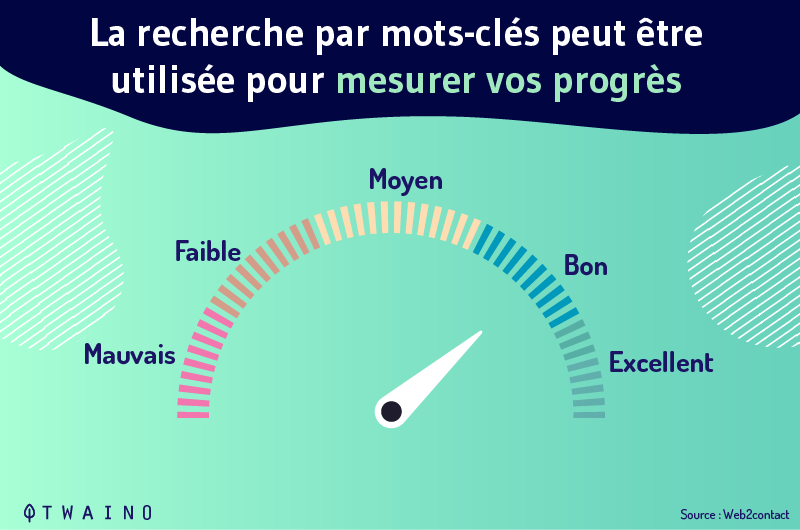
The truth is, there is another data source that is known worldwide as the single source of truth. It is Google Search Console.
So, if your website is always positioned at the top of Google for a given keyword, you should know that: The number of impressions of your page for that keyword will match its actual search volume.
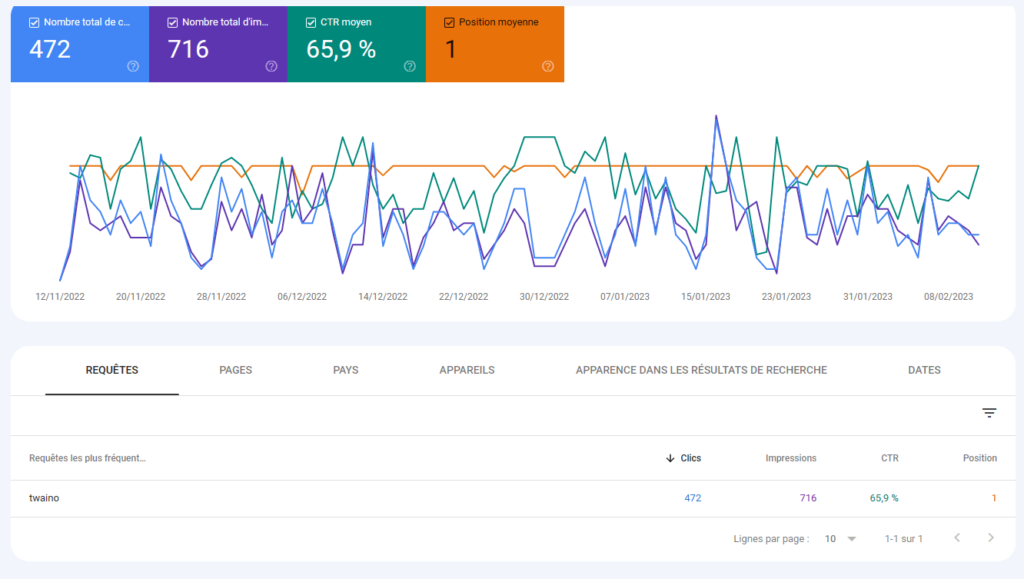
This implies that it is possible to verify the accuracy of search volumes in GKP. But to do so, you will have to compare the search volumes with the actual impressions of the same keywords in Google Search Console.
And that’s exactly what Ahrefs did in a recent study. From the results of the study, it should be noted that GKP significantly overestimates the search volumes in most cases.
It would be a bit of an exaggeration to say that the search volume in Google Keyword Planner is accurate. We can’t criticize too much this little lack of precision of GKP since it is a tool dedicated to advertisers and not to SEOs.
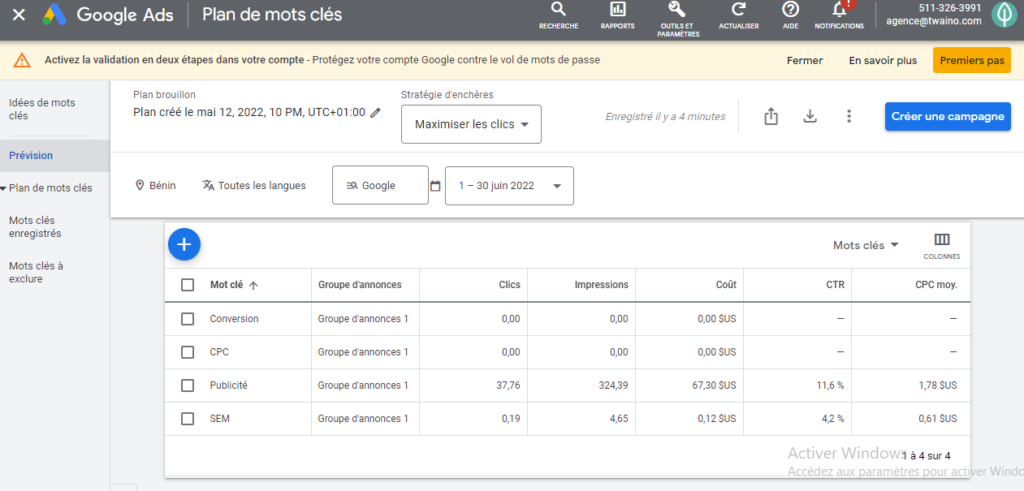
More to the point, GKP has a certain propensity to gather search queries that have a similar meaning into a single group. In fact, GKP is simply not able to determine a separate search volume for each of these queries.
A situation that is still quite beneficial for advertisers, but a real problem for SEOs.
Moreover, this propensity of GKP is noticed with many SEO tools. Hence the problem of search volume accuracy at their level as well.
For keyword search queries that are approximately the same, some tools often show the same search volume. However, in their search volume estimation, others include some data in their parameters.
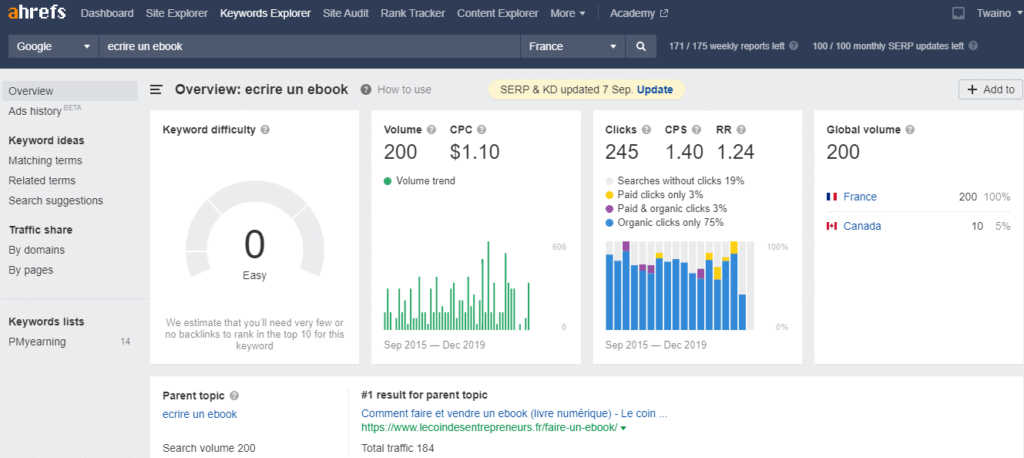
This allows them to ungroup the groups of keywords and of course to provide a distinct search volume for each of the keywords in these groups.
A priori, this ungrouping would make the search volumes of some tools like Ahrefs a bit more concise than those of GKP. No matter what is said, these slightly more accurate search volumes from Ahrefs are still estimates and not exact values.
5. Having an excellent search volume does not mean having a remarkable web traffic
Don’t confuse search volume with web traffic. As we said before, the search volume per keyword shows the number of times a particular keyword was searched on a search engine during a given period.
Talking about web traffic is like talking about potential web traffic. The latter is the amount of Internet traffic that a keyword can bring to your website if you position yourself in the top position.
Indeed, the 1st position is very important for web traffic. Because this position guarantees the website link a high click-through rate. For 5 million queries and 8,740,000 pages, the click rate for the first position is 31.7%.
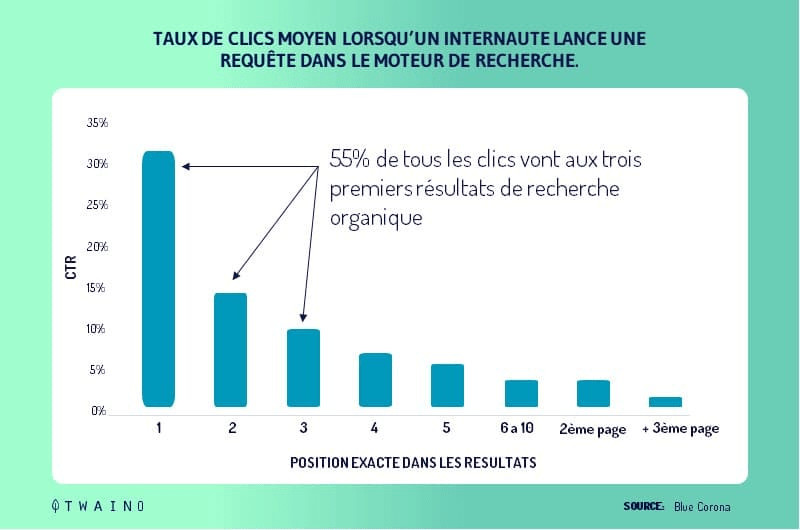
To be more precise, the result in the 1st position has a click rate 10 times higher than the result in the 10th position. From position number 11 in the SERP, the click-through rate drops to less than 0.1%.
This simply means that you should not always consider the search volume of individual keywords when evaluating its potential traffic volume.
You should analyze the top ranked web pages and see the total traffic they get for all the keywords on which those pages rank.
In summary
Without a doubt, keyword search volume is an important metric when researching effective keywords for SEO. However, the limitations and nuances of this metric should be recognized in your next keyword analysis.
The previous 5 points identified are the overlooked aspects of novice SEOs. So, I hope this article has been helpful to you.



